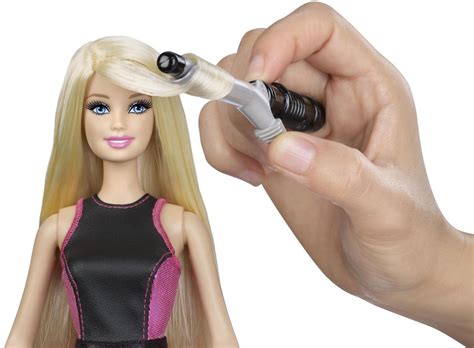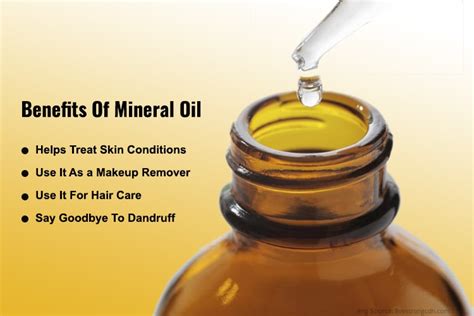Introduction
Mineral oil, a refined petroleum product, has gained popularity as a hair care ingredient due to its ability to provide intense moisture and shine. This versatile oil offers numerous benefits for hair health, making it a valuable addition to any hair care routine. This comprehensive guide explores the seven key benefits of mineral oil for hair, its various uses, and practical tips for maximizing its effectiveness.

7 Benefits of Mineral Oil for Hair
- Intense Hydration: Mineral oil acts as a powerful emollient, creating a protective barrier on the hair’s surface that prevents moisture loss. This results in hair that is deeply hydrated, soft, and supple.
- Improved Shine: The refractive index of mineral oil matches that of human hair, causing light to reflect evenly. This optical effect gives hair a brilliant shine and a healthy, well-cared-for appearance.
- Tame Frizz: Mineral oil’s ability to weigh down hair strands reduces frizz and flyaways, resulting in smooth, manageable hair.
- Seal Cuticles: Mineral oil helps seal the hair cuticles, smoothing the surface and preventing damage from external factors such as heat styling or environmental stress.
- Enhanced Detangling: Its lubricating properties make mineral oil an excellent detangling agent. It reduces friction between hair strands, making it easier to comb through and preventing breakage.
- Protection from Split Ends: Regular use of mineral oil can help prevent split ends by strengthening the hair shaft and reducing breakage.
- Promotes Hair Growth: Studies have shown that mineral oil may stimulate hair growth by nourishing the hair follicles with essential nutrients.
4 Uses of Mineral Oil for Hair
- Hair Oil Treatment: Apply mineral oil directly to the hair as a deep conditioning treatment to intensely hydrate and rejuvenate damaged hair. Leave on for 30 minutes to overnight.
- Hair Mask Ingredient: Add mineral oil to DIY hair masks for extra moisture and shine. Mix it with ingredients like honey, coconut oil, or avocado for a nourishing treatment.
- Split End Repair: Apply a small amount of mineral oil to the ends of the hair to seal split ends and prevent further damage.
- Styling Product: Use a few drops of mineral oil as a finishing touch to add shine and reduce frizz after styling.
Tips for Using Mineral Oil for Hair
- Use sparingly: Mineral oil is a heavy oil. Excessive use can weigh hair down and leave it greasy. Apply a nickel-sized amount for short hair or a quarter-sized amount for long hair.
- Focus on the ends: Mineral oil is most effective when applied to the ends of the hair, where it is most prone to dryness and damage.
- Emulsify with water: To prevent greasiness, emulsify mineral oil with a few drops of water before applying it to the hair.
- Avoid applying to the scalp: Mineral oil can clog hair follicles on the scalp if applied directly. Massaging mineral oil into the scalp once or twice a month for deep conditioning is acceptable.
- Rinse thoroughly: Carefully rinse out mineral oil after an overnight treatment or hair mask application. Any residual oil can weigh hair down.
Table 1: Benefits and Uses of Mineral Oil for Hair
| Benefit | Use |
|---|---|
| Intense Hydration | Hair Oil Treatment |
| Improved Shine | Hair Mask Ingredient |
| Tame Frizz | Split End Repair |
| Seal Cuticles | Styling Product |
| Enhanced Detangling | Deep Conditioning |
| Protection from Split Ends | Split End Repair |
| Promotes Hair Growth | Hair Mask Ingredient |
Table 2: Effective Strategies for Using Mineral Oil for Hair
- Emulsify with water: Mix mineral oil with water before applying to prevent greasiness.
- Apply sparingly: Use a small amount to avoid weighing hair down.
- Focus on the ends: Apply mineral oil primarily to the ends for optimal hydration.
- Use as a pre-shampoo treatment: Apply mineral oil as a deep conditioning treatment before washing hair.
- Rinse thoroughly: Carefully rinse out mineral oil after use to prevent buildup.
Table 3: Common Mistakes to Avoid When Using Mineral Oil for Hair
- Applying too much: Excessive use can weigh hair down and make it appear greasy.
- Using on the scalp: Applying mineral oil directly to the scalp can clog hair follicles.
- Skipping rinsing: Leaving mineral oil in hair for extended periods can lead to product buildup.
- Heat styling with mineral oil: Heat can alter the chemical structure of mineral oil, making it more difficult to remove from hair.
- Using expired mineral oil: Mineral oil has a shelf life. Using expired oil may not be effective.
Table 4: FAQs About Mineral Oil for Hair
- Does mineral oil damage hair? Studies have shown that mineral oil does not damage hair when used properly.
- Can mineral oil clog hair follicles? Yes, if applied directly to the scalp.
- How often should I use mineral oil on my hair? Once or twice a week.
- Is mineral oil safe for bleached or damaged hair? Yes, mineral oil can help nourish and repair damaged hair.
- What is the best way to remove mineral oil from hair? Use a clarifying shampoo to remove product buildup.
- Can I mix mineral oil with other hair products? Yes, you can mix mineral oil with other hair care ingredients, such as honey or coconut oil, to create DIY hair treatments.
Conclusion
Mineral oil is a versatile and effective hair care ingredient that offers a range of benefits for hair health and beauty. From deep hydration to improved shine, mineral oil can transform dull, damaged hair into soft, healthy, and lustrous locks. By understanding its benefits, uses, and practical tips, you can harness the power of mineral oil to achieve your hair care goals.
